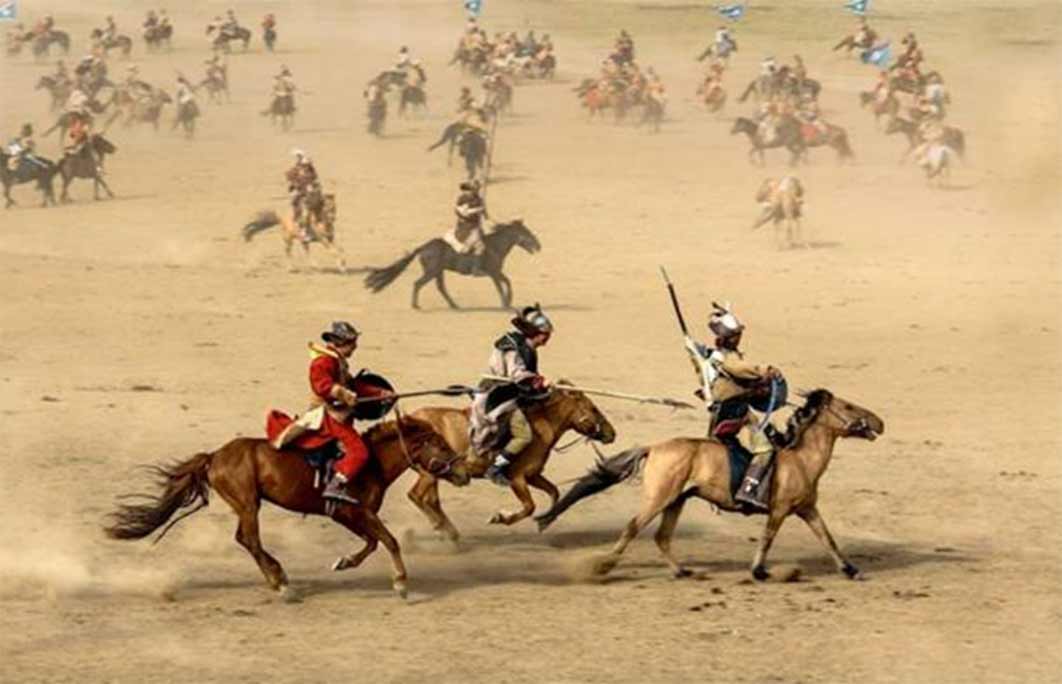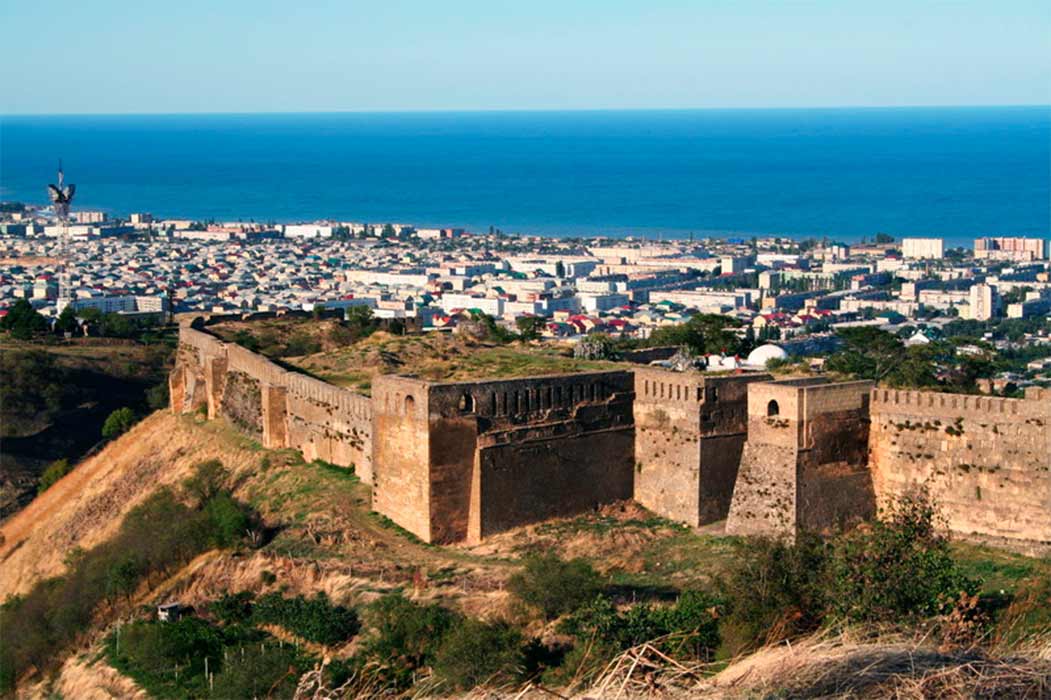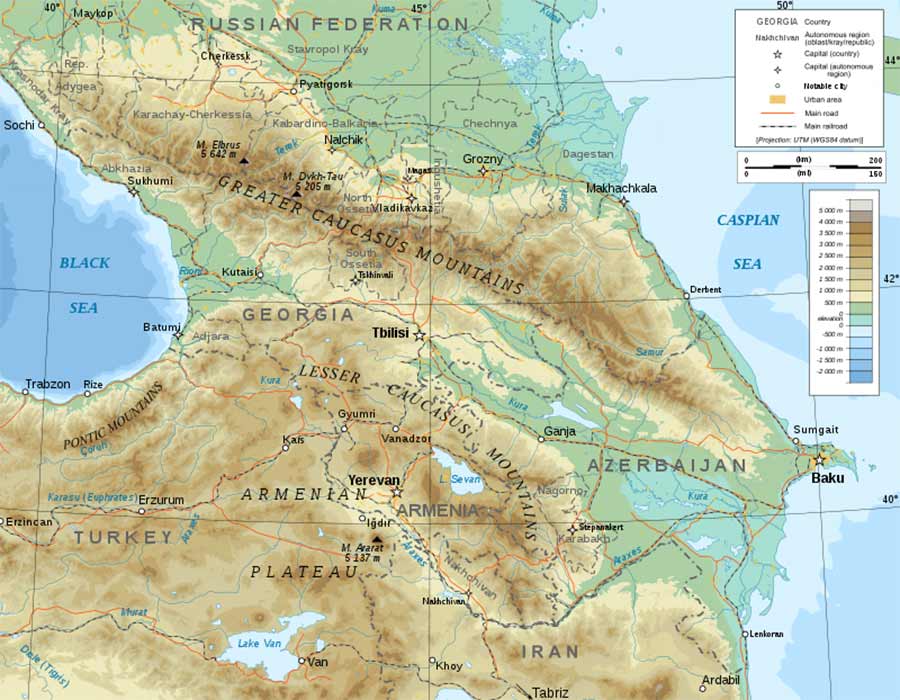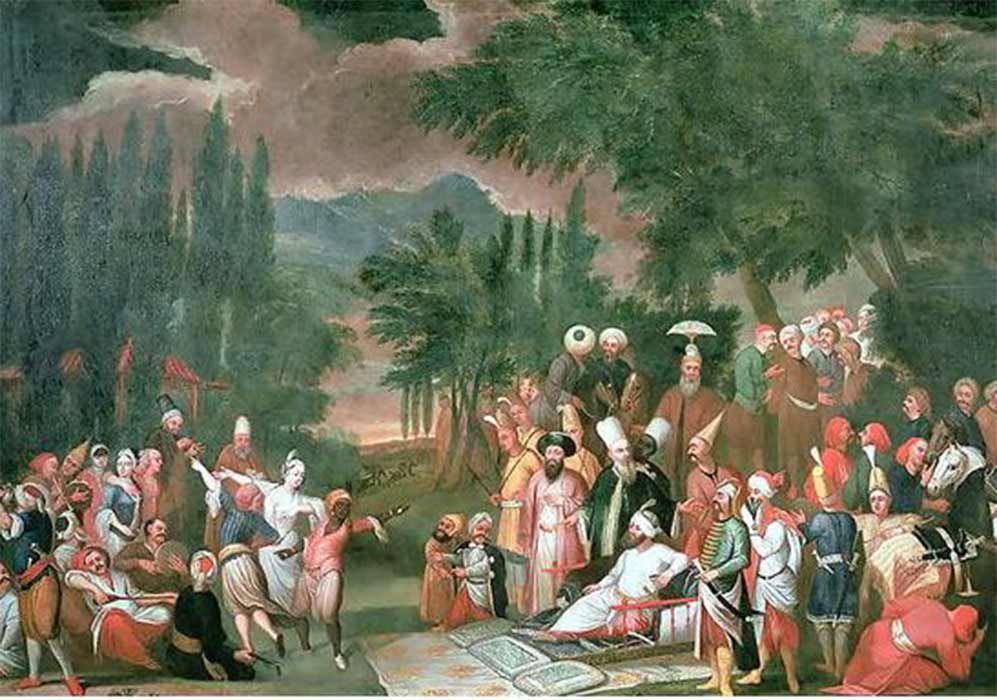
Crossing The Caucasian: The Mongol Invasion Venturing Into The Land Of The Rus
In 1221, to avoid being captured by the invading Mongols, Rashid, the Shah of Shirvan, abandoned his capital Shemakha, where the Genghis Khan’s generals Subotai and Jebe had ordered a siege tower to be built from corpses. Rashid fled to the fortress of Derbent. With winter still in their favor, Subotai and Jebe pursued Shah Rashid and headed north towards the Pass of Derbent. The Pass of Derbent was strategically important as it occupies the narrow gateway between the Caspian Sea and the Caucasus Mountains and it served as a barrier between civilization and the steppe. In their quest to reach “the land of the narrow faced men with light hair and blue eyes” the Mongols needed to secure this location in order to head north, towards the Land of the Rus.

Fortress at Derbent, the oldest city in Russia. (Ezil Alhamyev/ CC BY-SA 4.0)
Shah Rashid’s Treachery
Before Subotai moved north towards the fortress, he sent a message to Shah Rashid that he wanted to negotiate. Whether or not Rashid knew of the Mongols intention to march north is not known. Subotai’s message was clear; he had no intentions of conquering Georgia, let alone the province of Shirvan. Subotai just wanted assistance to pass through the region. He promised Rashid that he would not touch the city if the Mongols were provided supplies for their men and animals and guides to help them pass over the mountains. Rashid agreed and sent ten notables to the Mongol camp, but he had instructed the guides that they were to take the long and most challenging route through the mountains. Rashid had another group of notables preparing to take the shortest route through the mountains to sound the alarm to their Cuman (Qipchaqs) allies on the western steppe that an enemy army was approaching and would be passing through their territory. Once the notables arrived in Subotai’s camp, he made the terms of the agreement clear to them, and to show how serious he was; he had one of the ten executed. After being informed of the perilous journey that lay ahead, Subotai and Jebe agreed to leave behind anything too cumbersome, such as siege equipment and heavy baggage.

Topographic map of the Caucasus (Bourrichon/ CC BY-SA 4.0)
Trapping Subotai
As the Mongols made the long trek over the mountains, many men froze to death. Meanwhile the other group of notables, sent by Rashid, made their way to the Cuman camp and delivered a message to the Cuman chief, Khan Kotian that a large Mongol force was about to step foot in their territory. Kotian, mobilized his forces and called upon his allies, the Khazars and Bulgars, under the command of Yuri, the brother of Kotian, to head south and engage them. As Subotai’s Mongolian forces entered the valley of the Trek River, an army of 50,000 Ossetians, Lezgians, Circassians, and Cumans were waiting for them. Subotai realized that his guides had led them into a trap.
A seasoned general, Subotai had encountered many traps from which he found a way to bend to his will. However, this one was different. Besides his men being exhausted from their long-rugged journey, Subotai knew that if he were to turn around and head back, he would lose even more men to the hazardous conditions. On top of that, there was a chance that Rashid would have been waiting to engage his weary forces on the other side. Therefore, the only solution was to fight while they still had some strength.
- How Did They Do It? Masters of the Steppe: The Gear and Guts of the Mongol Military—Part I
- Subutai: Dog of War - Sophisticated Military Strategist Behind Genghis Khan’s Conquering Empire - Part I
- Military stronghold for Mongolian Conqueror Genghis Khan Found by Archaeologists
The Cumans possibly lined in an inverted crescent formation to block the Mongol's escape. This would also have allowed them to conduct a pincer movement if needed. Subotai, seeing that the odds were against them, ordered his men to form up and prepare for a frontal attack. Once his men were in position, they charged forward, delivering a volley of arrows only to receive the favor in return. Many of Subotai’s men were killed and wounded. Subotai ordered his men to take positions in the hills. The high ground gave Subotai somewhat of an advantage and allowed him time to reconsider his strategy. He had to come to a decision fast or his men would die due to hunger and exposure. Subotai and Jebe agreed that the only way out, was to negotiate, but they were cunning.





